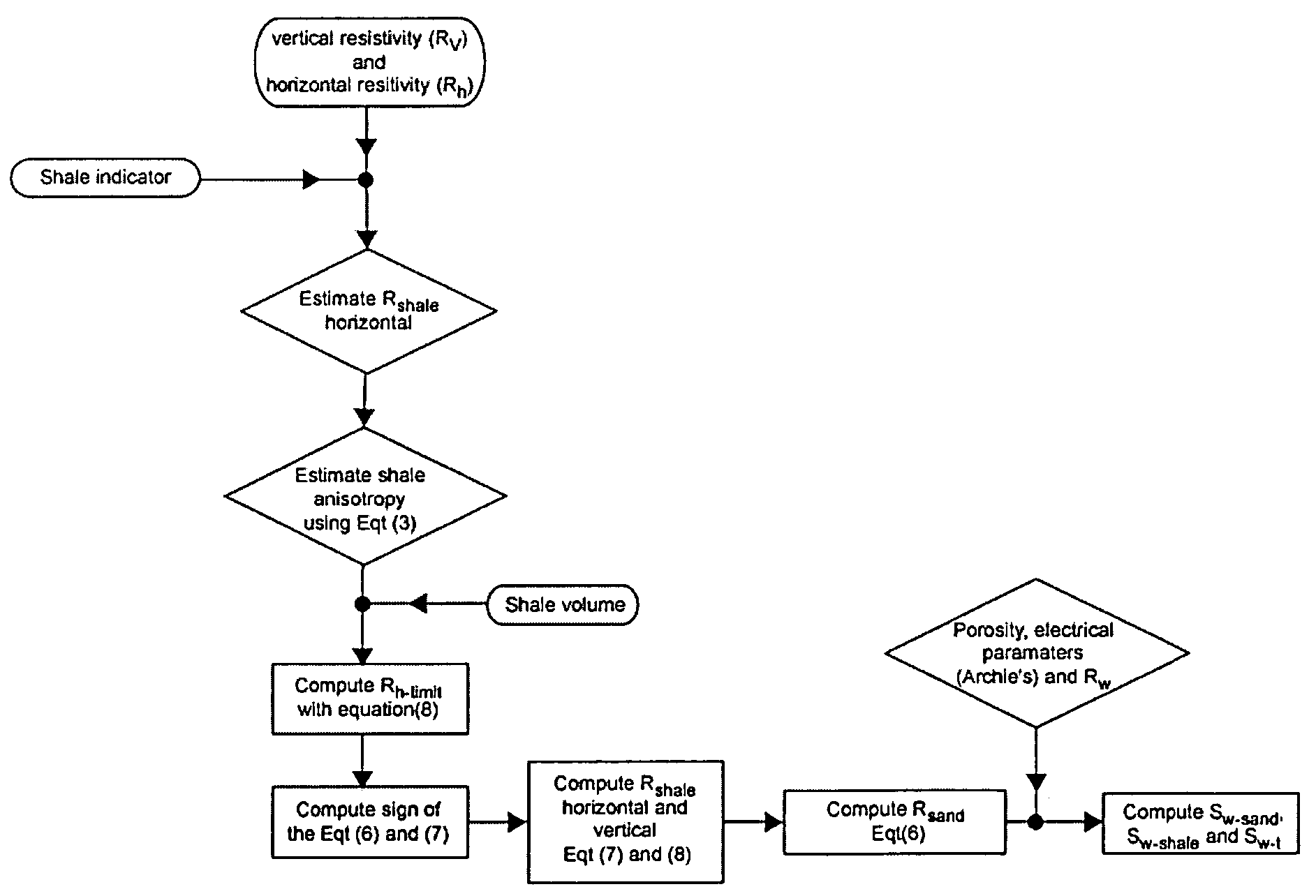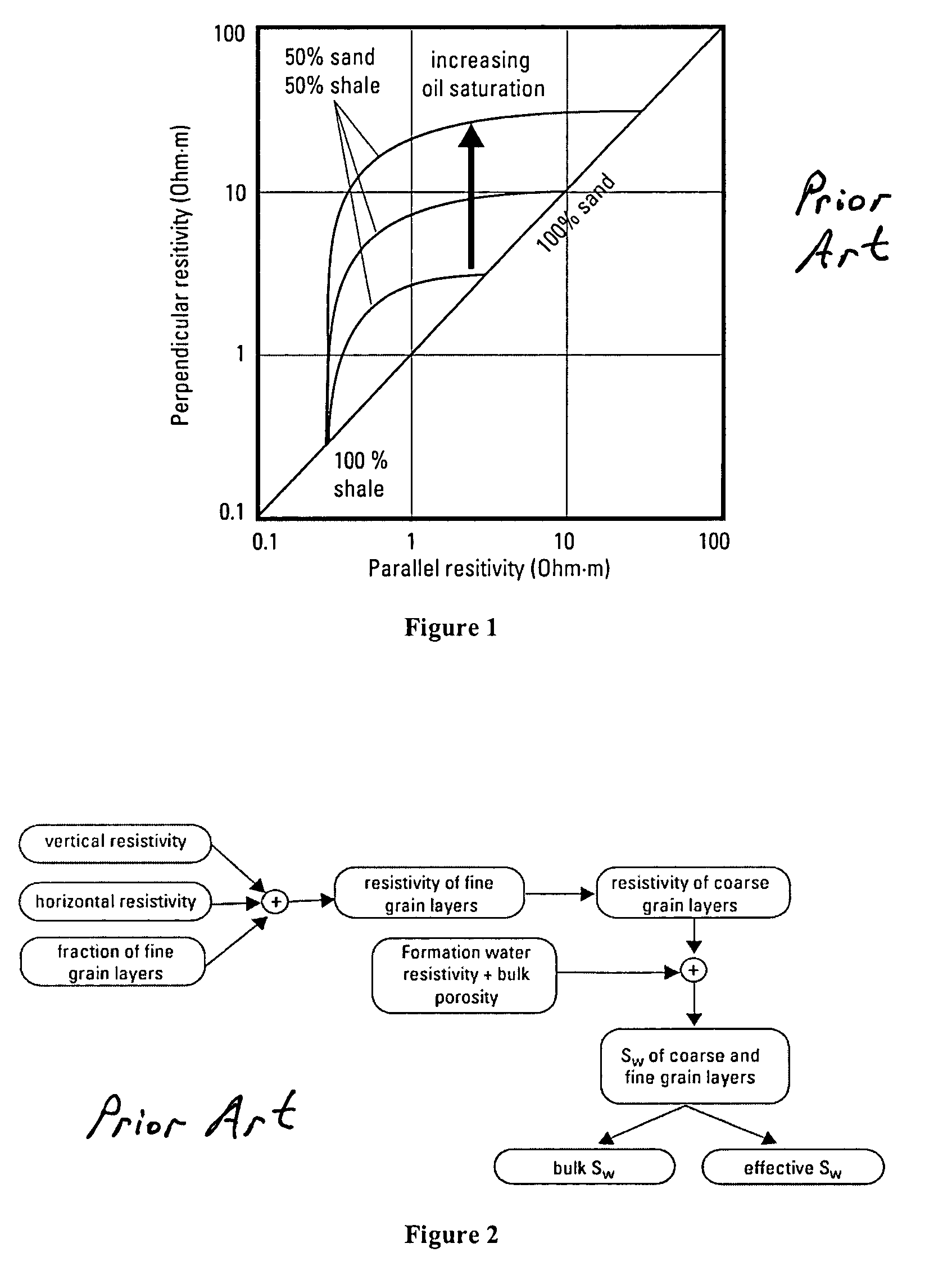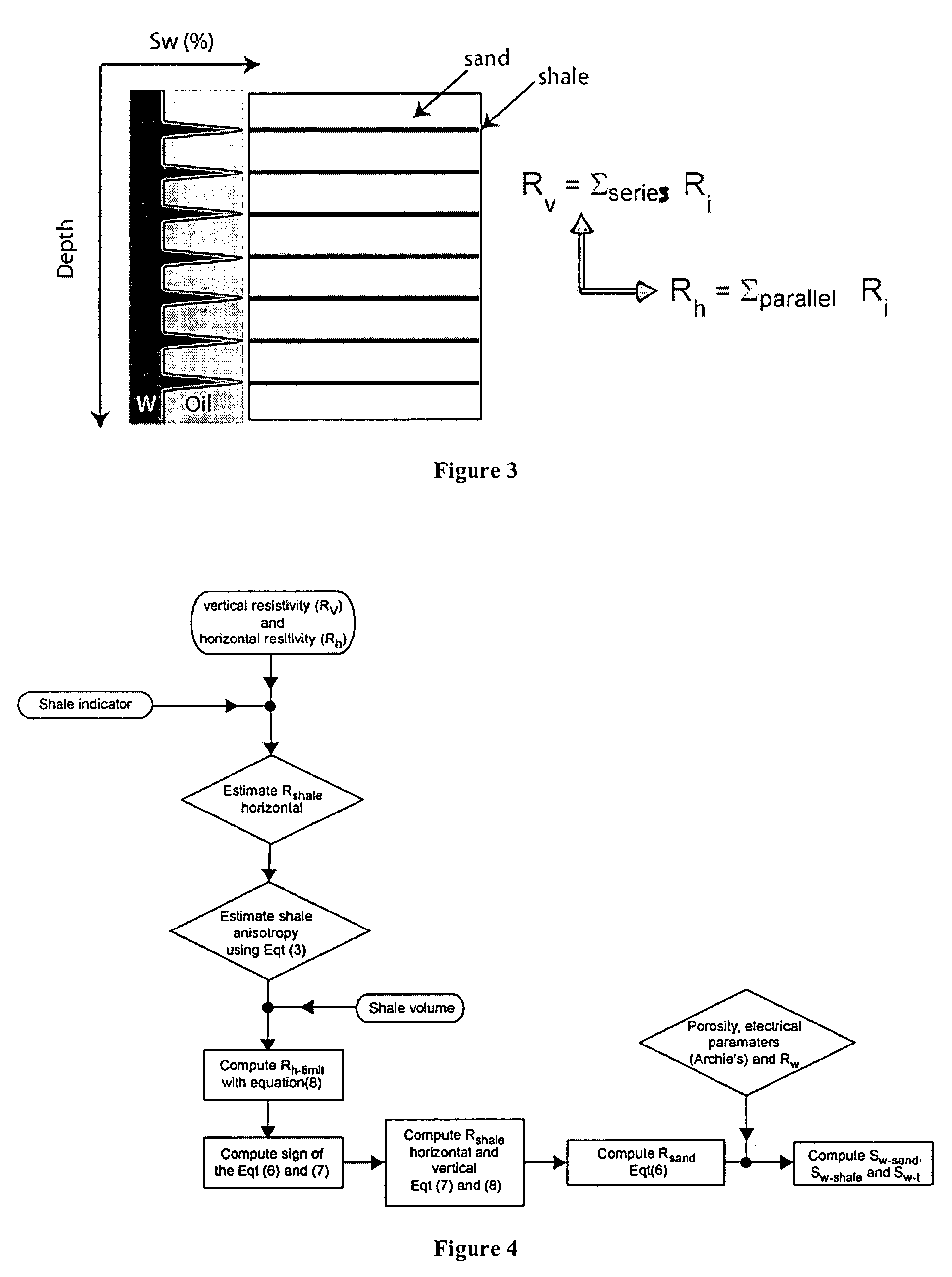Computing water saturation in laminated sand-shale when the shale are anisotropic
- Summary
- Abstract
- Description
- Claims
- Application Information
AI Technical Summary
Benefits of technology
Problems solved by technology
Method used
Image
Examples
Embodiment Construction
[0016]The present invention is a modeling method using a set of equations during or after logging operations to take into account the intrinsic electrical anisotropy of shale when computing water saturation in laminated shale-sand formations. The computation of water saturation in earth formations is useful at least for pay / reserve quantification, oil / water contact detection, relative permeability estimation, and reservoir simulation.
[0017]The method makes use of anisotropy of resistivity measurements. The computation allows one to take the shale anisotropy into account to better estimate water saturation Sw. The computation is based on the inversion of the anisotropy of resistivity in thin-bedded laminated sand-shale in terms of shale and sand resistivities. A shale anisotropy term is used to obtain the correct resistivity for both the sand and the shale. Consequently, the correct water saturation Sw can be computed for the sand, the shale, and the (total) formation.
[0018]Thinly la...
PUM
 Login to View More
Login to View More Abstract
Description
Claims
Application Information
 Login to View More
Login to View More - R&D
- Intellectual Property
- Life Sciences
- Materials
- Tech Scout
- Unparalleled Data Quality
- Higher Quality Content
- 60% Fewer Hallucinations
Browse by: Latest US Patents, China's latest patents, Technical Efficacy Thesaurus, Application Domain, Technology Topic, Popular Technical Reports.
© 2025 PatSnap. All rights reserved.Legal|Privacy policy|Modern Slavery Act Transparency Statement|Sitemap|About US| Contact US: help@patsnap.com



